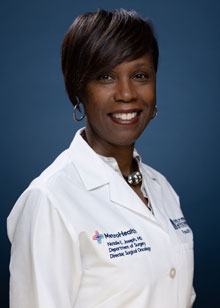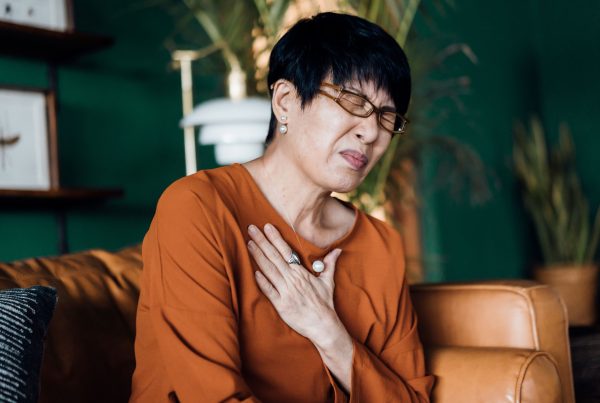Although the overall incidence of breast cancer is highest in white women, Black women have the highest rate of death from breast cancer, followed by Latina women.
Contributed by Natalie E. Joseph, MD | Division Director of Surgical Oncology
The age when a woman at average risk for breast cancer should get her first screening mammogram, and how often after that, has been debated for years.
Yearly mammograms an important tool for women and their care team to evaluate changes in their breasts. Early detection gives a woman more treatment options and significantly improves her chances of survival. Because of this, the breast health specialists within The MetroHealth System recommend that women start getting a yearly mammogram at age 40.
Although the overall incidence of breast cancer is highest in white women, Black women have the highest rate of death from breast cancer, followed by Latina women.
Black women are more likely to develop breast cancer at a younger age (under age 45) and have a higher incidence of triple negative breast cancer – a more aggressive form of breast cancer that is associated with a higher rate of mortality. Therefore, it is especially important that Black women get screened starting at age 40, regardless of their family history.
Latina women also are more likely to be diagnosed at a younger age and with more aggressive disease than their white counterparts. They are also about 30% more likely to die from their breast cancer than white women.
A screening mammogram is an x-ray exam that is performed for the early detection of breast cancer on women with no symptoms.
“Getting regular screening with mammography is important because early detection of breast cancer improves survival,” says Natalie Joseph, MD, Interim Director of the MetroHealth Cancer Center, and Director of MetroHealth’s Center for Breast Health. “Also, 75% of women with breast cancer have no identifiable risk factors or known family history.”
Socioeconomic status, racial bias, access to health care and other factors may all contribute to the higher death rate in Black and Latina women.
MetroHealth is committed to making access to regular breast health care easier for all women. Since 2019, MetroHealth’s 3D Mammography Coach has traveled throughout the community, bringing to patients the same 3D mammography (also known as breast tomosynthesis) that is standard at all MetroHealth screening locations.
MetroHealth’s BREAST/Amigas program, which provides community outreach and education on breast cancer to Latina women in Cuyahoga County, uses the specialized coach for its free screening mammography events in the community.
Join Dr. Joseph Thursday, October 23rd, at 12:00 p.m. (EST) for the upcoming Virtual Health Talk about breast health and breast cancer screening recommendations.












